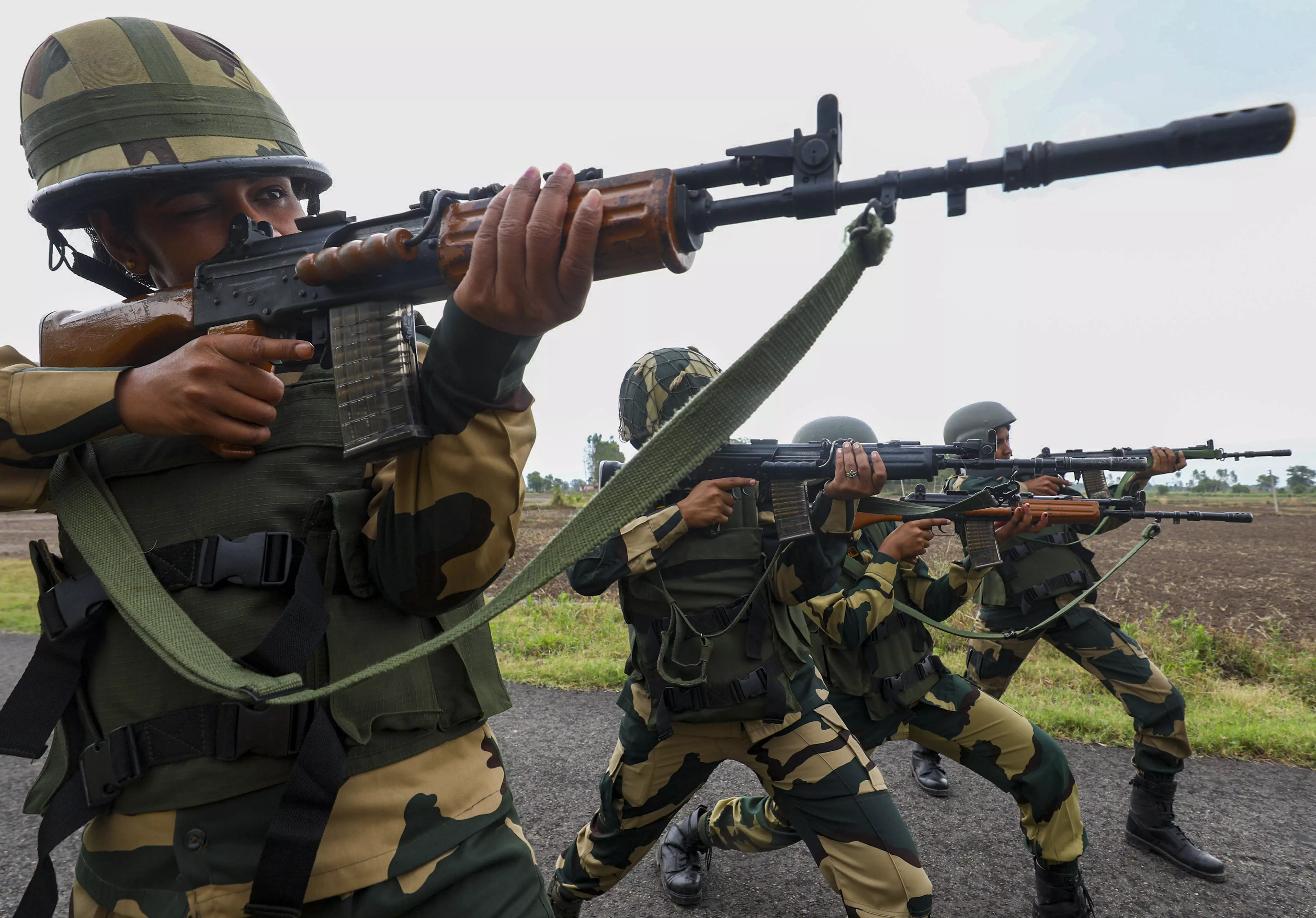Anita Anand | How Should India Battle Terrorism: Are There Alternative Options to Explore?
State terrorism, which results in significantly more deaths than the non-state variety, is seldom even acknowledged, much less treated as an urgent issue

Is there an alternative on how terrorism can be eliminated? The attack on civilians in Jammu and Kashmir’s Pahalgam tourist resort in April, which led to the deaths of 26 people, provoked a strong response from the Indian government.
Two weeks later, the Indian armed forces conducted a tri-service military operation codenamed “Operation Sindoor”. This operation targeted terrorist infrastructure in Pakistan, aiming to neutralise the operational capabilities of the groups responsible for cross-border terrorism on Indian soil.
With the announcement of a ceasefire on May 10, India then followed up with a global diplomatic outreach, dispatching seven all-party delegations to 33 countries around the world to explain its position and expose Pakistan’s alleged role in supporting the terrorist activity.
What exactly is terrorism? While there is no universally accepted definition, we can refer to the United Nations General Assembly’s description, which condemned terrorist actions as: “Criminal acts intended or calculated to provoke a state of terror in the public, a group of persons, or particular persons for political purposes are in any circumstance unjustifiable, whatever the considerations of a political, philosophical, ideological, racial, ethnic, religious or any other nature that may be invoked to justify them.”
How serious is terrorism in India?
The Global Terrorism Index (GTI) is a report published annually by the Institute for Economics and Peace (IEP), an independent, non-partisan, non-profit think tank. It covers 163 countries, 99.7 per cent of the world’s population, providing a comprehensive summary of the key global trends and patterns in terrorism since 2000. The index produces a composite score to offer an ordinal ranking of countries based on the impact of terrorism.
India’s overall score on the GTI 2024 improved to 6.32 on a scale of ten, from 7.18 a year earlier, meaning that terrorism had a lesser impact in 2023 than in 2022. Why is the Indian government’s response so strident and desperate if this is indeed correct?
In his public appearances in the past few weeks, Prime Minister Narendra Modi has stressed the need to deal with terrorism. “I say to the whole world: India will identify, track, and punish every terrorist and their backers. We will pursue them to the ends of the earth. India’s spirit will never be broken by terrorism and will not go unpunished.” This is an ambitious promise, and in these times, it is more of the same approach, which has been unsuccessful. Both externally and internally.
Since gaining Independence in 1947, the Indian government has routinely responded to internal conflict and unrest by deploying the military for counter-insurgency operations, with few efforts to address the root causes. For instance, in the Northeast, there are issues of poverty, discrimination, and a failure to integrate the culturally distinct region with the rest of India. Since the mid-1960s, the uprising and its repression in Naxalbari in West Bengal have been violent. Its members, known as Naxalites, have led armed movements to get the government’s attention and improve the situation of predominantly tribal areas. This struggle has spread to 10 states across India.
In 2006, then Prime Minister Manmohan Singh named the left-wing extremists as the “single biggest internal security threat” in India. Really? What about poverty, joblessness, and other key social indicators?
Insurgency attempts in India have been met with violence. Terrorism researchers call this response the repression paradigm, which directs attention to terrorism by non-state groups.
State terrorism, which results in significantly more deaths than the non-state variety, is seldom even acknowledged, much less treated as an urgent issue. In India, in the last decade, policies and practices resembling state terrorism have been evident in the repression of the minorities and the disenfranchised.
Terrorism expert Richard Rubenstein says the retaliation policy is about revenge and is reminiscent of the blood feud. It is a paradigm as alternatives are not on the agenda. If a terrorist attack is foiled, it is to show the value of police powers. If an attack occurs, it is said to demonstrate that more police funding and powers are needed. Whatever happens, it does not shake the repression mindset.
Are there alternatives to repression? Progressives recommend social justice as a way to prevent terrorism and non-violent action as an alternative to violence for promoting social change. Conflict resolution, as a value, can be taught as an essential part of the curriculum for bureaucrats and politicians in schools and colleges. It will encourage people and states to resolve issues peacefully.
The Zen Buddhist monk and teacher Thich Nhat Hanh says: “Across the globe, people suffer from the same issues: social injustice, discrimination, fear, and fanaticism. Fundamentalism is very much alive globally. Many individuals believe that they alone are on the side of God and perceive the lives of others as less precious. However, considering what others do as evil
while considering our actions as good prevents us from understanding others’ values and recognising their suffering and fear. Instead of making us stronger, our unwillingness to listen keeps us vulnerable and afraid.”
And listen, we must. Unless we understand why people and states resort to terrorism, we might never be able to resolve it.
India’s dispatching of members of Parliament as emissaries to explain its response to the April attack is misguided. Instead, some internal soul-searching could have been contemplated. This could be dialogues in communities, educational and religious institutions, and the media to consider that the citizens of Pakistan are not our enemy, and that terrorism cannot be rooted out by repression. The excessive use of force, threats of war and muscle flexing have not resolved any conflict.
Alternatives must be on the agenda.
